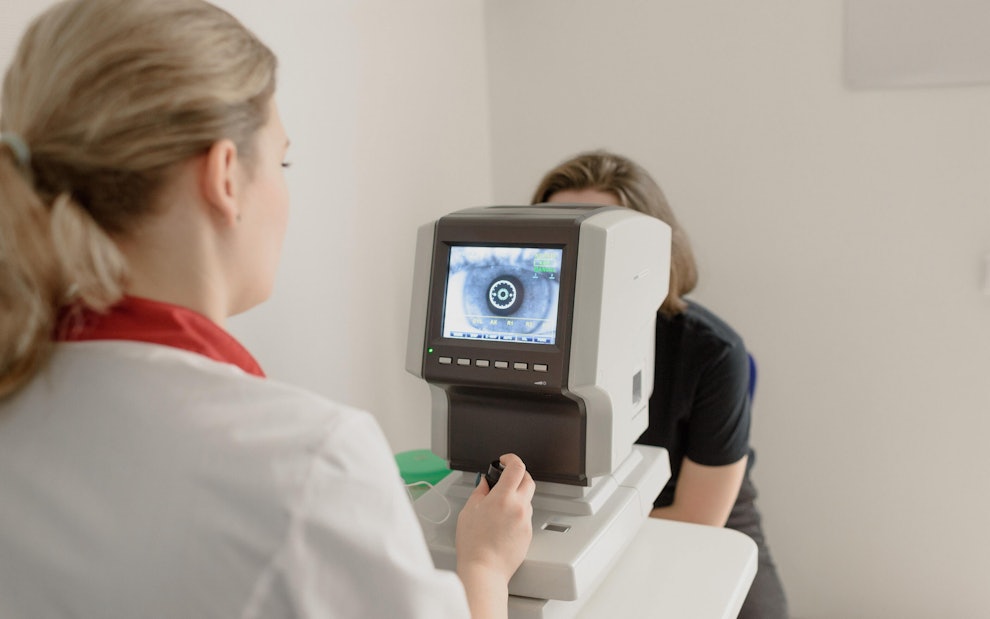Medicare and LASIK Surgery: Does Medicare Cover It?
Article at a glance
LASIK eye surgery may improve vision in cases of farsightedness, nearsightedness, or astigmatism. Since it is considered an elective procedure, Medicare coverage does not pay for this procedure.
Medicare Advantage plans may cover LASIK as part of its additional benefits offerings. This will vary depending on the specific Medicare Advantage plan, however, and interested parties should always check with their provider or a licensed health insurance agent to confirm.
A Medigap plan will not help cover any of the costs associated with LASIK surgery.
There are various ways to get help paying for LASIK such as TK. Stand-alone vision insurance sometimes provides discounts for LASIK, even if they don’t cover the procedure itself.

A Medicare beneficiary with vision problems may be interested in LASIK eye surgery in order to improve their eyesight. But does Medicare cover LASIK surgery?
No, Original Medicare will not cover LASIK, nor will a Medigap plan help cover the procedure. That said, a Medicare Advantage plan may cover a LASIK procedure as part of its additional benefits. As well, Medicare beneficiaries may enroll in vision insurance or enroll in a financing plan to help pay for the procedure.
This article will explain everything there is to know about Medicare and LASIK surgery, including how to pay for this procedure without vision benefits.
What is LASIK Eye Surgery?
Laser-assisted in situ keratomileuses (LASIK) is a type of eye surgery used to correct certain vision issues. It is a quick and safe surgery. However, as is with all surgical procedures, there are risks to consider in addition to the benefits.
Benefits
It can potentially improve eyesight in those with farsightedness, nearsightedness, or astigmatism
It’s an extremely fast surgery, lasting around 20 minutes
Results are noticed quickly
Patients may no longer require corrective lenses after surgery
Risks
May cause frustrating side effects such as dry eyes or nighttime glare (these are uncommon, however)
There is a possibility of severe injury that would greatly impact vision (this is rare)
There’s the chance of needing the surgical procedure again later on
Note: Learn more about the pros and cons of LASIK at this resource.

How Much Does LASIK Eye Surgery Cost?
Without insurance, LASIK eye surgery costs around $2,000 per eye. Most insurances do not cover LASIK as it is an elective procedure, meaning it is not medically necessary.
Does Medicare Pay for Vision Care?
The Federal Medicare Program is made up of various types of health plans. One of these is called Original Medicare. Original Medicare consists of Medicare Part A (hospital insurance) and Medicare Part B (medical insurance). Neither of these Medicare Parts includes vision coverage for routine vision care.
This means that everything from routine eye exams to eyeglasses to contact lenses is not covered. This means beneficiaries are expected to pay 100% of out-of-pocket costs for these items and services unless they have additional coverage through a standalone plan, Medicare Part C plan, or Medigap plan.
That said, Medicare pays for one pair of corrective lenses (eyeglasses or contact lenses) following cataract surgery. Medicare may also cover vision exams for certain patients who need medically necessary eye exams. For example, Medicare pays for an annual vision exam for those with diabetes or for those at high risk for glaucoma. Medicare will also cover tests and treatment for age-related macular degeneration.

Does Medicare Cover LASIK Eye Surgery?
Medicare covers various types of surgery. However, the surgery in question must be a medical necessity. Medicare considers LASIK to be elective surgery, just like most other health insurance plans, so it does not cover LASIK.
Note: Learn more about Medicare and coverage for surgeries as this resource.
Do Medicare Advantage Plans Cover LASIK?
Medicare Advantage plans, also known as Medicare Part C or MA plans, are a type of Medicare supplement insurance. These Medicare plans are offered through private insurance companies that are Medicare-approved.
Most Medicare Advantage plans include extra benefits, including hearing, dental, and vision care. This may also include coverage for LASIK. This will vary based on the specific MA plan chosen, however. As such, always confirm extra coverage, such as vision and elective surgery coverage, with the insurance company.
How to Choose a Medicare Advantage Plan With Vision Benefits
While many Medicare Advantage plans do include extra coverage for needs such as vision care, not all do. That said, there are various ways to confirm coverage for vision.
Use Medicare’s MA plan comparison tool: This helps beneficiaries compare MA plans prior to enrolling. Compare plans here.
Speak with a licensed insurance agent: They are educated on everything their plans have to offer, helping beneficiaries make the most informed decisions.

Do Medigap Plans Cover LASIK?
Medigap or MedSupp plans are supplemental Medicare plans that intend to “fill in the gaps” of Original Medicare. Medigap plans often help with deductible, copayment, and coinsurance payments.
When it comes to eye care, Medigap plans will not help Original Medicare beneficiaries with payments. As well, Medicare Advantage enrollees cannot be enrolled in both a Medicare Advantage plan and have a Medigap policy.
Will Vision Insurance Help Pay For LASIK?
Medicare beneficiaries also have the option to purchase a stand-alone vision policy offered through private insurance companies. These plans typically cost around $5 to $35 each month. Most vision insurance plans provide coverage for routine eye exams and yearly allowances for corrective lenses. As well, many also provide discounts on laser vision correction, such as LASIK.
How to Pay for LASIK Without Coverage
For those who do not have a Medicare Advantage plan that includes vision care or are uninterested in enrolling in a separate vision insurance plan, there are still options for LASIK.
Financing plan: There are finance companies that offer finance plans to cover LASIK as well as other elective procedures. Patients can talk to their eye doctor about options.
Flexible savings account (FSA): An FSA are plans in which money is deducted from an employee’s paycheck. These funds are allotted for out-of-pocket expenses for medical care. This may include LASIK. Learn more about FSAs at this resource.
FAQ
Does Medicare cover LASIK surgery?
In short, no, because it is not medically necessary and deemed as an elective surgery.
How long does LASIK last?
For the majority of patients, the results of LASIK surgery last a lifetime.
Sources
https://www.medicarefaq.com/faqs/medicare-vision-care-coverage/
https://www.fda.gov/medical-devices/lasik/what-are-risks-and-how-can-i-find-right-doctor-me
https://www.medicare.gov/coverage/macular-degeneration-tests-treatment
https://healthblog.uofmhealth.org/eye-health/pros-and-cons-of-lasik-are-risks-worth-cost
https://www.investopedia.com/ask/answers/112315/does-flexible-spending-account-fsa-cover-lasik.asp
https://www.investopedia.com/articles/pf/11/vision-care-insurance.asp
Become a patient
Experience the Oak Street Health difference, and see what it’s like to be treated by a care team who are experts at caring for older adults.




